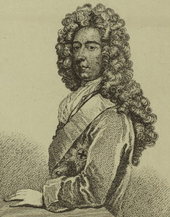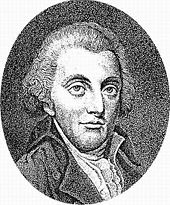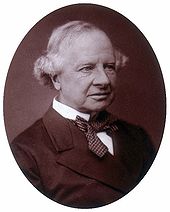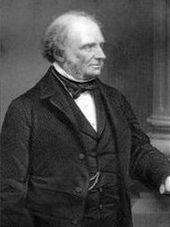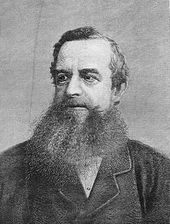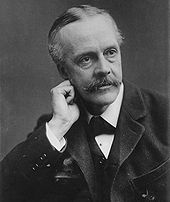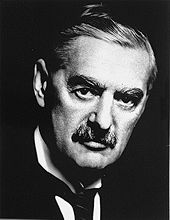- Lord President of the Council
-
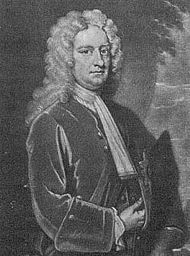 Lord President of the Council Charles Spencer, 3. Earl of Sunderland
Lord President of the Council Charles Spencer, 3. Earl of Sunderland
Das Amt des Lord President of the Council ist eine britische Kabinettsposition. Sein Inhaber ist Präsident des Privy Council. Diese Position entspricht in den Territorien des Heiligen Römischen Reiches und den späteren deutschen Monarchien der des Vorsitzenden des Geheimen Rats. Die Hauptaufgabe des Präsidenten ist der Vorsitz bei Versammlungen, bei denen Orders-in-Council erlassen werden, denen der britische Monarch formal zustimmen muss.
Der Lord President of the Council ist der vierte unter den Great Officers of State und folgt auf den Lord High Steward (Hofmarschall), den Lord High Chancellor (Lordkanzler) und den Lord High Treasurer (Lordschatzmeister).
Da die Pflichten dieses Amts nicht allzu umfassend sind, werden die Aufgaben oftmals von einem Regierungsminister übernommen, für gewöhnlich von hohem Rang und ohne Geschäftsbereich. In neuerer Zeit wurde es üblich, dass der President of the Council zugleich dem Unterhaus oder wie die beiden letzten Amtsinhaber zugleich dem Oberhaus vorsaßen. Seit 2006 ist der Sprecher der Mehrheitsfraktion im Oberhaus zugleich Lord President.
Im 19. Jahrhundert war der President of the Council als Kabinettmitglied u.a. verantwortlich für das Bildungswesen, das zu dieser Zeit noch in den Zuständigkeitsbereich des Privy Council fiel, dessen Einfluss aber im späten 19. und früh 20. Jahrhunderte immer weiter beschnitten worden ist.
Eine besonders wichtige Rolle spielte der Lord President während des Zweiten Weltkriegs als Vorsitzender des Lord President's Committee, das mit den ökonomischen Problemen befasst war, die die Verteidigung des Landes hervorriefen. Ganz wesentlich trug dieses Komitee zum Erfolg der britischen Kriegswirtschaft und schließlich der Kriegbemühungen bei.
Viele der Lords President waren sehr einflussreiche Politiker, darunter auch zahlreiche Premierminister oder Generalgouverneure und Vizekönige von Indien.
Lords President 1530-1553
- Charles Brandon, 1. Duke of Suffolk (1530-1545)
- William Paulet, 1. Marquess of Winchester (1546-1550)
- John Dudley, 1. Duke of Northumberland (1550-1553)
Lords President 1621-1631
- Henry Montagu, 1. Earl of Manchester (1621-1628)
- James Ley, 1. Earl of Marlborough (1628)
- Edward Conway, 1. Viscount Conway (1628-1631)
Lords President seit 1678
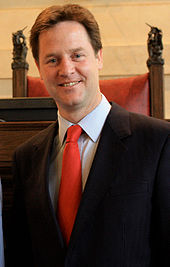 Nick Clegg, der gegenwärtige Lord President
Nick Clegg, der gegenwärtige Lord President
- Anthony Ashley-Cooper, 1. Earl of Shaftesbury (1679)
- John Robartes, 1. Earl of Radnor (1679-1684)
- Laurence Hyde, 1. Earl of Rochester (1684-1685)
- George Savile, 1. Marquess of Halifax (1685)
- Robert Spencer, 2. Earl of Sunderland (1685-1688)
- Thomas Osborne, 1. Duke of Leeds (1689-1699)
- Thomas Herbert, 8. Earl of Pembroke (1699-1702)
- Charles Seymour, 6. Herzog von Somerset (1702)
- Thomas Herbert, 8. Earl of Pembroke (1702-1708)
- John Somers, Lord Somers (1708-1710)
- Laurence Hyde, 1. Earl of Rochester (1710-1711)
- John Sheffield, 1. Duke of Buckingham and Normanby (1711-1714)
- Daniel Finch, 2. Earl of Nottingham (1714-1716)
- William Cavendish, 2. Duke of Devonshire (1716-1718)
- Charles Spencer, 3. Earl of Sunderland (1718-1719)
- Evelyn Pierrepont, 1. Duke of Kingston-upon-Hull (1719-1720)
- Charles Townshend, 2. Viscount Townshend (1720-1721)
- Henry Boyle, 1. Baron Carleton (1721-1725)
- William Cavendish, 2. Duke of Devonshire (1725-1730)
- Thomas Trevor, 1. Baron Trevor (1730)
- Spencer Compton, 1. Earl of Wilmington (1730-1742)
- William Stanhope, 1. Earl of Harrington (1742-1745)
- Lionel Cranfield Sackville, 1. Duke of Dorset (1745-1751)
- John Carteret, 2. Earl Granville (1751-1763)
- John Russell, 4. Duke of Bedford (1763-1765)
- Daniel Finch, 8. Earl of Winchilsea (1765-1766)
- Robert Henley, 1. Earl of Northington (1766-1767)
- Granville Leveson-Gower, 1. Marquess of Stafford (1767-1779)
- Henry Bathurst, 2. Earl Bathurst (1779-1782)
- Charles Pratt, 1. Earl Camden (1782-1783)
- David Murray, 2. Earl of Mansfield (1783)
- Granville Leveson-Gower, 1. Marquess of Stafford (1783-1784)
- Charles Pratt, 1. Earl Camden (1784-1794)
- William Wentworth-Fitzwilliam, 4. Earl Fitzwilliam (1794)
- David Murray, 2. Earl of Mansfield (1794-1796)
- John Pitt, 2. Earl of Chatham (1796-1801)
- William Henry Cavendish-Bentinck, 3. Duke of Portland (1801-1805)
- Henry Addington (1805)
- John Jeffreys Pratt, 2. Earl Camden (1805-1806)
- William Wentworth-Fitzwilliam, 4. Earl Fitzwilliam (1806)
- Henry Addington (1806-1807)
- John Jeffreys Pratt, 2. Earl Camden (1807-1812)
- Henry Addington (1812)
- Dudley Ryder, 1. Earl of Harrowby (1812-1827)
- William Cavendish-Scott-Bentinck, 4. Duke of Portland (1827-1828)
- Henry Bathurst, 3. Earl Bathurst (1828-1830)
- Henry Petty-Fitzmaurice, 3. Marquess of Lansdowne (1830-1834)
- James St Clair Erskine, 2. Earl of Rosslyn (1834-1835)
- Henry Petty-Fitzmaurice, 3. Marquess of Lansdowne (1835-1841)
- James Stuart-Wortley-Mackenzie, 1. Baron Wharncliffe (1841-1846)
- Walter Montagu-Douglas-Scott, 5. Duke of Buccleuch (1846)
- Henry Petty-Fitzmaurice, 3. Marquess of Lansdowne (1846-1852)
- William Lowther, 2. Earl of Lonsdale (1852)
- Granville George Leveson-Gower, 2. Earl Granville (1852-1854)
- John Russell, 1. Earl Russell (1854-1855)
- Granville George Leveson-Gower, 2. Earl Granville (1855-1858)
- James Brownlow William Gascoyne-Cecil, 2. Marquess of Salisbury (1858-1859)
- Granville George Leveson-Gower, 2. Earl Granville (1859-1866)
- Richard Temple-Nugent-Brydges-Chandos-Grenville, 3. Duke of Buckingham (1866-1867)
- John Winston Spencer-Churchill, 7. Duke of Marlborough (1867-1868)
- George Robinson, 1. Marquess of Ripon (1868-1873)
- Henry Austin Bruce, 1. Baron Aberdare (1873-1874)
- Charles Gordon-Lennox, 6. Duke of Richmond and Lennox (1874-1880)
- John Spencer, 5. Earl Spencer (1880-1883)
- Chichester Parkinson-Fortescue (1883-1885)
- Gathorne Hardy, 1. Earl of Cranbrook (1885-1886)
- John Spencer, 5. Earl Spencer (1886)
- Gathorne Hardy, 1. Earl of Cranbrook (1886-1892)
- John Wodehouse, 1. Earl of Kimberley (1892-1894)
- Archibald Philip Primrose, 5. Earl of Rosebery (1894-1895)
- Spencer Compton Cavendish, 8. Duke of Devonshire (1895-1903)
- Charles Vane-Tempest-Stewart, 6. Marquess of Londonderry (1903-1905)
- Robert Offley Ashburton Crewe-Milnes, 1. Marquess of Crewe (1905-1908)
- Edward Marjoribanks, 2. Baron Tweedmouth (1908)
- Henry Hartley Fowler, 1. Viscount Wolverhampton (1908-1910)
- William Lygon, 7. Earl Beauchamp (1910)
- John Morley, 1. Viscount Morley of Blackburn (1910-1914)
- William Lygon, 7. Earl Beauchamp (1914-1915)
- Robert Offley Ashburton Crewe-Milnes, 1. Marquess of Crewe (1915-1916)
- George Nathaniel Curzon, 1. Marquess Curzon of Kedleston (1916-1919)
- Arthur Balfour (1919-1922)
- James Gascoyne-Cecil, 4. Marquess of Salisbury (1922-1924)
- Charles Alfred Cripps, 1. Baron Parmoor (1924)
- George Nathaniel Curzon, 1. Marquess Curzon of Kedleston (1924-1925)
- Arthur Balfour (1925-1929)
- Charles Alfred Cripps, 1. Baron Parmoor (1929-1931)
- Stanley Baldwin (1931-1935)
- Ramsay MacDonald (1935-1937)
- Edward Frederick Lindley Wood, 1. Earl of Halifax (1937-1938)
- Douglas Hogg, 1. Viscount Hailsham (1938)
- Walter Runciman, 1. Viscount Runciman of Doxford (1938-1939)
- James Stanhope, 7. Earl Stanhope (1939-1940)
- Arthur Neville Chamberlain (1940)
- John Anderson, 1. Viscount Waverley (1940-1943)
- Clement Attlee (1943-1945)
- Frederick Marquis, 1. Earl of Woolton (1945)
- Herbert Stanley Morrison (1945-1951)
- Christopher Addison, 1. Viscount Addison (1951)
- Frederick Marquis, 1. Earl of Woolton (1951-1952)
- Robert Gascoyne-Cecil, 5. Marquess of Salisbury (1952-1957)
- Alec Douglas-Home, 14. Earl of Home (1957)
- Quintin McGarel Hogg (1957-1959)
- Alec Douglas-Home, 14. Earl of Home (1959-1960)
- Quintin McGarel Hogg (1960-1964)
- Herbert Bowden (1964-1966)
- Richard Crossman (1966-1968)
- Fred Peart (1968-1970)
- William Whitelaw (1970-1972)
- Leonard Robert Carr, Baron Carr of Hadley (1972)
- James Prior (1972-1974)
- Edward Short (1974-1976)
- Michael Foot (1976-1979)
- Christopher Soames, Baron Soames (1979-1981)
- Francis Pym (1981-1982)
- John Biffen (1982-1983)
- William Whitelaw, 1. Viscount Whitelaw (1983-1988)
- John Wakeham (1988-1989)
- Sir Geoffrey Howe (1989-1990) (zurückgetreten)
- John MacGregor (1990-1992)
- Tony Newton (1992-1997)
- Ann Taylor, Baroness Taylor of Bolton (1997-1998)
- Margaret Beckett (1998-2001)
- Robin Cook (2001-2003) (zurückgetreten)
- John Reid (2003)
- Gareth Wyn Williams, Baron Williams of Mostyn (2003) (im Amt verstorben)
- Valerie Amos, Baroness Amos (2003-2007)
- Catherine Ashton, Baroness Ashton of Upholland (2007-2008)
- Janet Royall, Baroness Royall of Blaisdon (2008-2009)
- Peter Benjamin Mandelson, Baron Mandelson (2009-2010)
- Nick Clegg (2010- )
Lord High Steward | Lord High Chancellor | Lord High Treasurer | Lord President of the Council | Lord Keeper of the Privy Seal | Lord Great Chamberlain | Lord High Constable | Earl Marshal | Lord High Admiral
Wikimedia Foundation.
Schlagen Sie auch in anderen Wörterbüchern nach:
Lord President of the Council — Infobox minister office border = parliamentary minister = not prime office = Lord President of the Council incumbent = The Baroness Royall of Blaisdon tookoffice = 3 October 2008 appointed by = Gordon Brown governor = Prime Minister first… … Wikipedia
lord president of the council — a British officer of state who has only nominal official duties as presiding member of the Privy Council in the United Kingdom but who is often made a member of the cabinet and entrusted with special functions * * * Lord President of the Council… … Useful english dictionary
(the) Lord President of the Council — the Lord President of the Council [the Lord President of the Council] the title of the British government minister who is President of the ↑Privy Council (= group of people who advise the king or queen). He or she is also either the ↑Leader of… … Useful english dictionary
Lord President of the Council — the title of the British government minister who is President of the Privy Council (= group of people who advise the king or queen). He or she is also either the Leader of the House of Commons or the Leader of the House of Lords. * * * … Universalium
Lord President of the Council — noun (in the UK) the cabinet minister presiding at the Privy Council … English new terms dictionary
Lord President of the Federal Court — of Malaysia was formerly the title of the head of the judiciary in Malaysia, from the formation of Malaysia in 1963 until 1994. Today the office and title is known as the Chief Justice of the Federal Court of Malaysia .The Lord President was head … Wikipedia
president of the council — A member of the king s council or cabinet having precedence next after the lord chancellor and the lord treasurer. See 1 Bl Comm 230 … Ballentine's law dictionary
Lord Président du Conseil — Lord President of the Council Armoiries du gouvernement britannique, Bureau du Conseil privé … Wikipédia en Français
Lord President — The title Lord President may refer to one of several offices:*The Lord President of the Council is the presiding officer of the Privy Council of the United Kingdom*The Lord President of the Court of Session is the chief justice and Lord Justice… … Wikipedia
Lord Keeper of the Privy Seal — Thomas Cromwell, 1. Earl of Essex Der Lordsiegelbewahrer (Lord Keeper of the Privy Seal oder kurz Lord Privy Seal) ist eines der ältesten Ämter in der englischen bzw. britischen Regierung. Ursprünglich war der Lordsiegelbewahrer für das private… … Deutsch Wikipedia

